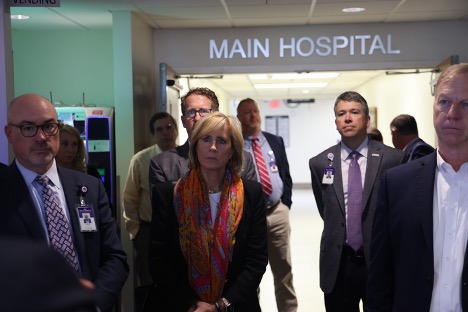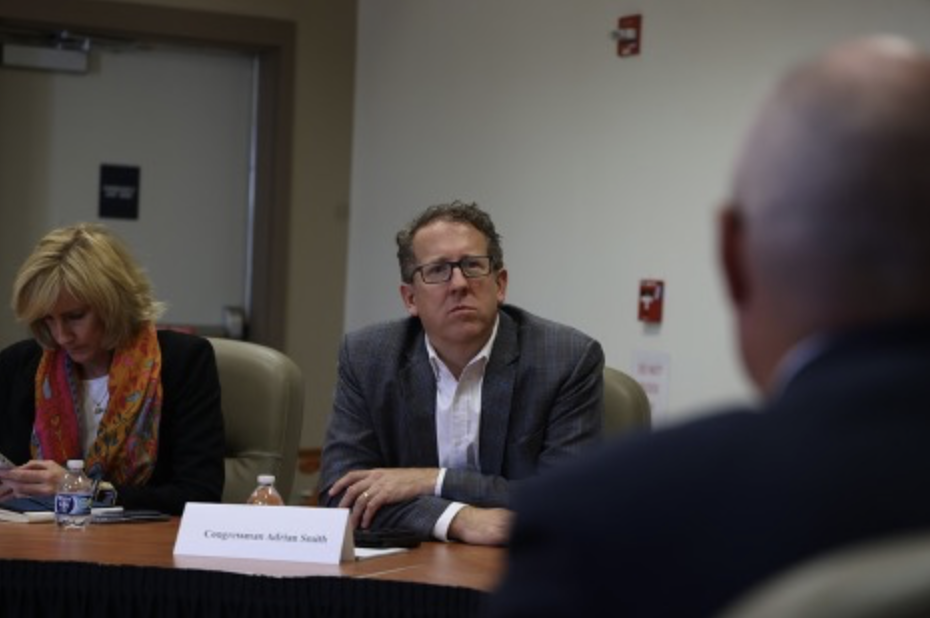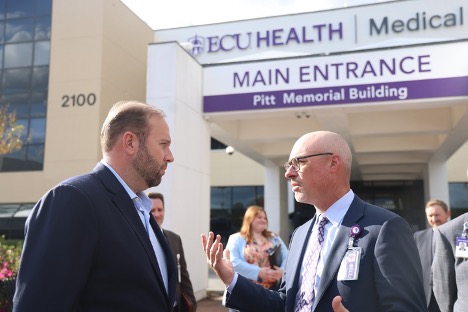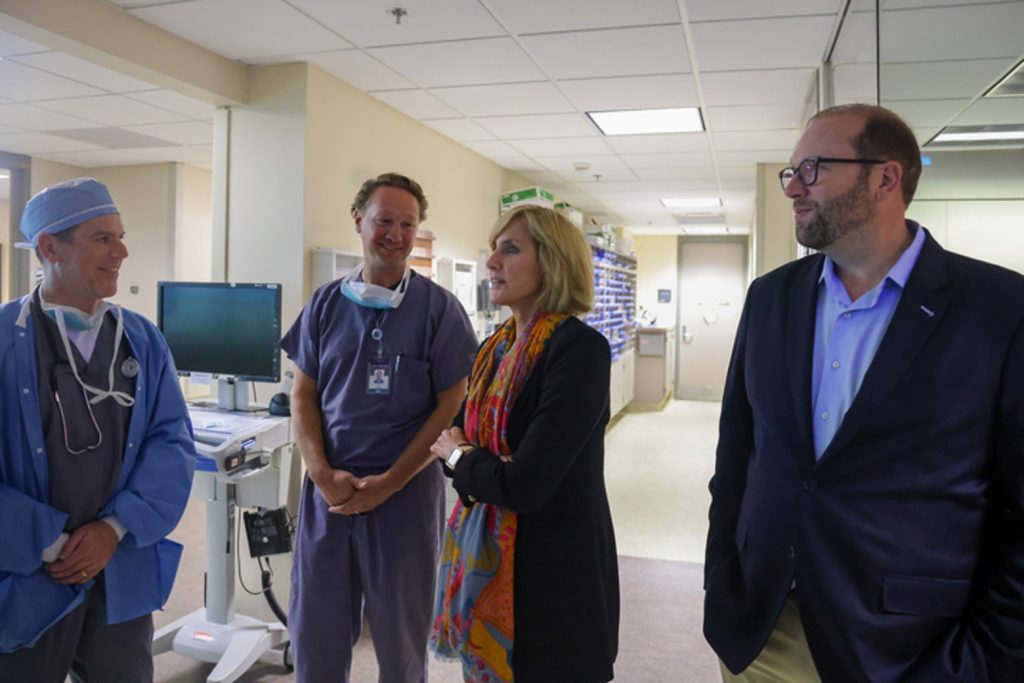EASTERN NORTH CAROLINA – During visits to three health care facilities in eastern North Carolina, members of the Ways and Means Committee met with and heard directly from doctors, nurses, patients, and local leaders about the difficulty of accessing quality health care in rural America. Having to rely on larger urban hospitals for specialized care, long drive times for emergency care, and staff shortages were among the most frequent barriers cited for rural patients. Community members also shared that Washington has frequently made the problem worse by creating a patchwork of programs that are outdated, manipulated, or are so poorly targeted that non-rural hospitals are eligible for funds meant to help rural and isolated hospitals.
Rep. Greg Murphy (NC-03), Rep. Adrian Smith (NE-03), Rep. Kevin Hern (OK-01), and Rep. Claudia Tenney (NY-24) joined Ways and Means Committee Chairman Jason Smith (MO-08) in visiting three health care sites operated by ECU Health, an academic health care system serving eastern North Carolina.
The visit follows an open letter issued by the Ways and Means Committee to the health care community seeking ideas to solve rural America’s health care crisis.
Chairman Smith released the following statement on yesterday’s roundtables:
“Thank you to the doctors and local leaders on the front lines who took the time to share the challenges of providing and accessing heath care in rural communities. We also saw the patients in our rural communities who are forced to live these issues day in and day out. Our delegation heard about the continued need for health care professionals in rural areas – especially rural-focused residency programs, federal programs that are truly targeted to rural providers, and ways to deliver quality care to patients who otherwise would be forced to drive long distances to get the care they need. Right now, Washington forces rural health providers to either sink under the weight of unsustainable financial losses, or swim against the tide of staff shortages, outdated bureaucratic rules, and scarce resources. On its current path, access to health care for a huge portion of America will cease to exist, putting the health of millions more rural Americans at stake. The Ways and Means Committee will take what we learned today from patients and medical providers on the frontlines of this crisis and use it to inform the best way to expand access to health care in rural communities.”
Rep. Greg Murphy (NC-03) – who hosted the group of Committee members in his district in eastern North Carolina – released the following statement:
“Nearly 60 million individuals, or one-in-five Americans, lives in a rural area where health care services are often limited. It was a pleasure introducing my colleagues to local leaders, physicians, and hospital representatives in Eastern North Carolina to examine access and the challenges associated with providing and receiving care in rural areas. All Americans deserve access to high quality and affordable health care services and the House Ways and Means Committee is committed to ensuring that becomes a reality.”
Small Town Rebuilds After a Local Hospital Closes
Committee members heard from local community leaders about how the small town of Belhaven, NC, was hurt after its hospital closed in 2014. The community is now served by a multispecialty clinic that offers primary care and limited specialty care, while the nearest emergency room is at least a 30-minute drive away. Still, challenges remain in keeping even this clinic open. Costs for some overhead categories are comparable to urban hospitals, but Medicare’s payment formulas reimburse rural providers at a lower rate, directing critical funding out of rural areas seeking to take care of patients.


Status Quo Fails Rural Hospitals and Patients
Current federal reimbursement structures encourage rural hospitals to only offer basic care and limited maternity services, leaving more financially stabilizing specialty care to flagship urban hospitals. The result is less immediate access for rural patients and an untenable cross-subsidization for rural hospitals struggling to survive on their own. At a hospital in Washington, NC, Committee members discussed how reworking the outdated and patchwork reimbursement system can empower rural hospitals to stay afloat while leveraging supplemental technology such as telehealth to allow their patients to meet with outside specialists for more complicated care without having to travel long distances.


Residency Programs Can Help Alleviate Doctor Shortage in Rural Communities
To address the shortage of doctors, Congress funded more slots for graduate medical education residencies in rural hospitals, yet this critical funding continues to flow primarily to large urban hospitals, partly due to the fact rural hospitals may lack the resources to apply for and administer a residency program. Each slot not dedicated to a rural area represents one less doctor that rural communities will have access to.
Members toured a teaching hospital in Greenville, NC, that could serve as a model for getting more doctors to practice in rural communities. Residents finish the last two years of residency in a rural hospital. Eighty-five percent of the students choose to practice in North Carolina after completing their medical residency, helping more rural Americans get care in their community.


